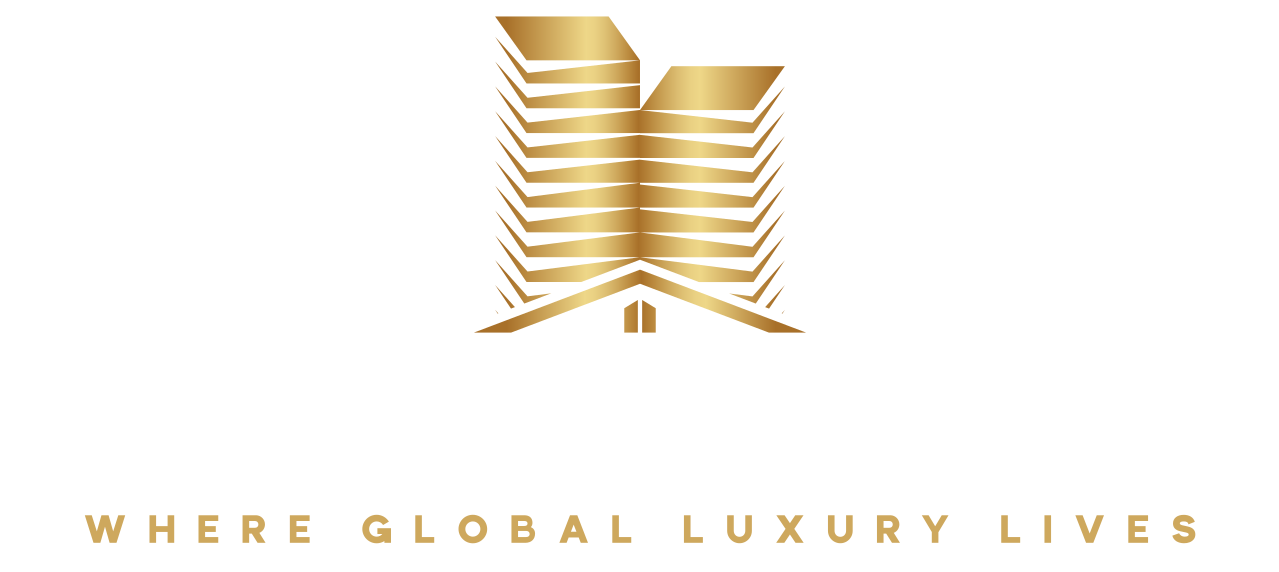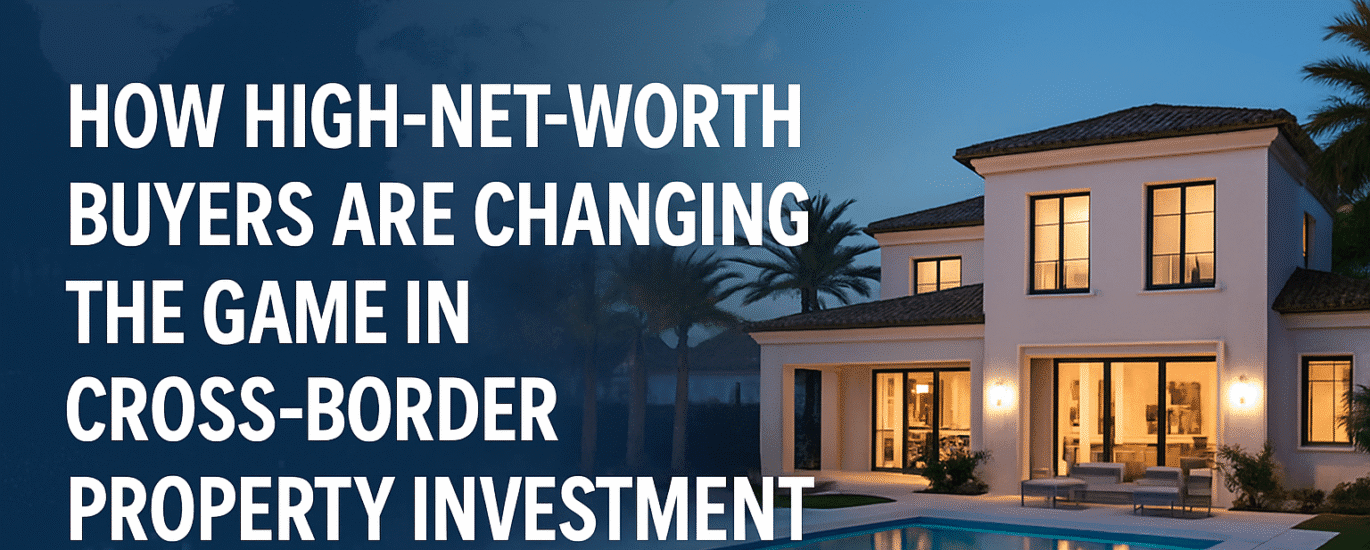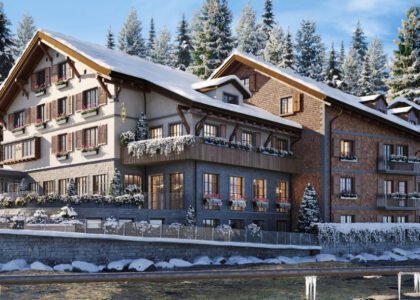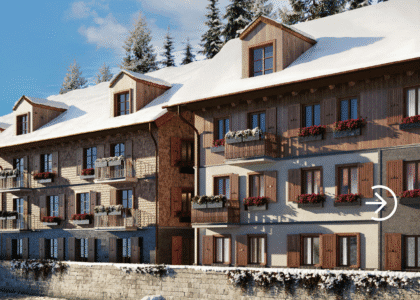Introduction to the Rise of High-Net-Worth Individuals (HNWIs) in Real Estate
Who Are High-Net-Worth Individuals (HNWIs)?
High-Net-Worth Individuals (HNWIs) aren’t just rich—they’re ultra-wealthy game changers in the real estate space. Defined by financial institutions as people with liquid assets over $1 million, this group includes CEOs, entrepreneurs, tech moguls, and old-money elites. But there’s more to them than just a stacked bank account. HNWIs operate with a global mindset, and their investment strategies reflect a sophisticated taste and a hunger for security, status, and exclusivity.
Their influence is deeply felt in the luxury real estate market. These buyers are not just purchasing homes; they’re acquiring status symbols, lifestyle statements, and financial hedges all at once. Whether it’s a luxury penthouse in Manhattan or a villa on the French Riviera, HNWIs use property as a way to solidify their wealth portfolios.
This class of buyers is no longer restricted to local or even national markets. They look at exclusive homes worldwide with the same ease as shopping online. This shift to globalism has dramatically transformed how properties are marketed, sold, and designed. And this is only the beginning.
The Surge in Global Wealth and What It Means for Real Estate
We’re living in an era where wealth is growing faster than ever. According to Knight Frank’s Wealth Report, the number of HNWIs and Ultra-High-Net-Worth Individuals (UHNWIs) is rising across Asia, the Middle East, and North America. This wealth boom is causing ripple effects in the global luxury estates market.
With more people entering this elite tier, demand for luxury homes for sale—not just in traditional hotspots like London or New York, but also in previously under-the-radar markets like Lisbon, Dubai, and Tulum—is exploding. The surge in wealth is diversifying demand and pushing developers to create more high-end property listings that meet the unique needs of these buyers.
And the purchasing behavior of these buyers isn’t driven just by ROI; it’s driven by a mix of lifestyle aspirations, political motivations, and legacy-building goals. Whether they’re securing second passports, preparing for retirement, or seeking digital nomad freedom, HNWIs are reshaping the rules of property investment.
Why Cross-Border Real Estate Is Booming Among HNWIs
The Appeal of Diversification in Luxury Property Investments
For HNWIs, the mantra is simple: don’t keep all your eggs in one basket. And this applies to real estate more than anything else. Diversifying across borders helps reduce geopolitical risks, currency fluctuations, and market downturns. So, rather than buying a dozen apartments in one city, they’re spreading their investments across international luxury properties in different continents.
Why? Because luxury real estate, when purchased globally, becomes a safety net. A beachfront home in Bali or a modern apartment in Berlin not only offers a lifestyle upgrade but also acts as an investment hedge. In uncertain times, owning property across multiple stable economies is a financial masterstroke.
Luxury property investments across borders are now part of wealth management strategies advised by top-tier consultants. These professionals often suggest acquiring a mix of luxury villas for sale, urban penthouses, and countryside estates—each chosen not just for beauty, but for stability, tax advantages, and potential appreciation.
Political and Economic Drivers Behind International Property Demand
You can’t ignore the global shifts driving this boom. From political unrest to tax changes and inflation, HNWIs are constantly adjusting their strategies to protect wealth. Countries like Portugal and Greece have introduced Golden Visa programs, allowing property investors to gain residency rights—an incredibly attractive offer for those seeking mobility and stability.
Meanwhile, in volatile regions, buying property abroad isn’t a luxury—it’s a necessity. High-net-worth buyers from countries facing political instability (think Venezuela, Russia, or parts of Africa) view luxury property abroad as a safe haven. The result? A fierce demand for luxury property brokers who can navigate local laws, identify opportunities, and execute deals swiftly.
Not to mention the rise of remote work. Many executives now have the freedom to live wherever they choose. The pandemic accelerated this trend, and now cities like Dubai, Lisbon, and Bangkok are magnets for elite talent, offering both lifestyle and premium real estate services.
Top Trends in International Luxury Properties
Shift from Traditional Markets to Emerging Luxury Real Estate Hubs
New money isn’t just flowing into traditional powerhouses like London, New York, or Hong Kong anymore. There’s a marked shift toward newer, more dynamic locations—especially in Southeast Asia, Eastern Europe, and even parts of Africa.
Buyers are chasing value, lifestyle, and long-term growth. Cities like Istanbul, Tulum, Ho Chi Minh City, and Cape Town are witnessing massive jumps in luxury real estate listings. They offer cultural appeal, lower costs, high rental yields, and a growing expat community—ideal conditions for investing in luxury homes for sale.
In addition, developers in these markets are upping their game. We’re talking about waterfront properties, smart homes, and gated communities that match or even surpass what’s available in more saturated markets—all tailored to meet the demands of an international clientele.
Demand for Sustainable and Smart High-End Properties
Green is the new gold. HNWIs aren’t just buying properties—they’re investing in the future. From solar panels to smart security systems, sustainability and tech-forward designs are now non-negotiable features of high-end property listings.
Whether it’s LEED-certified villas in Costa Rica or passive houses in Germany, today’s elite buyers are leaning hard into eco-conscious living. This trend is pushing developers to prioritize not only aesthetics but also environmental impact—adding long-term value to luxury property investments.
Moreover, the inclusion of smart home automation—lighting, heating, and security systems controlled via smartphone—is becoming a standard in new developments. These features not only offer convenience but are often a deciding factor for investors seeking to future-proof their portfolios.
Lifestyle-Driven Purchases Over Investment-Only Approaches
Today’s HNWIs aren’t just looking at spreadsheets; they’re thinking about how the property fits into their lives. Do they envision waking up to an ocean view in Marbella? Hosting lavish parties in a rooftop penthouse in Dubai? Taking family vacations in a Tuscan villa?
Luxury property professionals now market homes not just on price or ROI, but on the lifestyle they provide. It’s a complete shift from “what can I earn?” to “how can I live better?”
These lifestyle-driven purchases often lead to better retention rates and more meaningful long-term property relationships. Buyers are more invested, emotionally and financially, when the purchase aligns with their personal goals and dreams.
Key Destinations for Cross-Border Luxury Real Estate Investments
Europe’s Golden Visa Markets
Europe remains a magnet for HNWIs, not only because of its historical charm and vibrant culture but also due to the availability of Golden Visa programs. Countries like Portugal, Greece, and Spain have smartly leveraged these programs to attract international capital into their upscale property market.
In Portugal, for instance, purchasing real estate worth €500,000 or more qualifies an investor for residency—and ultimately, citizenship. This has turned Lisbon, Cascais, and the Algarve region into global hubs for international luxury properties. The combination of favorable tax schemes, safety, healthcare, and quality of life makes them irresistible to global buyers.
Greece is also catching up fast. The Greek Golden Visa program, which starts at just €250,000 in property investment, is the lowest entry point in the EU. With stunning islands like Mykonos and Santorini offering breathtaking villas, the demand for luxury villas for sale has surged dramatically.
What’s interesting is that these markets don’t just attract retirees or second-home seekers. Many entrepreneurs and digital nomads view these properties as hybrid spaces—part vacation home, part remote office—adding a new dimension to how luxury property consultants market these estates.
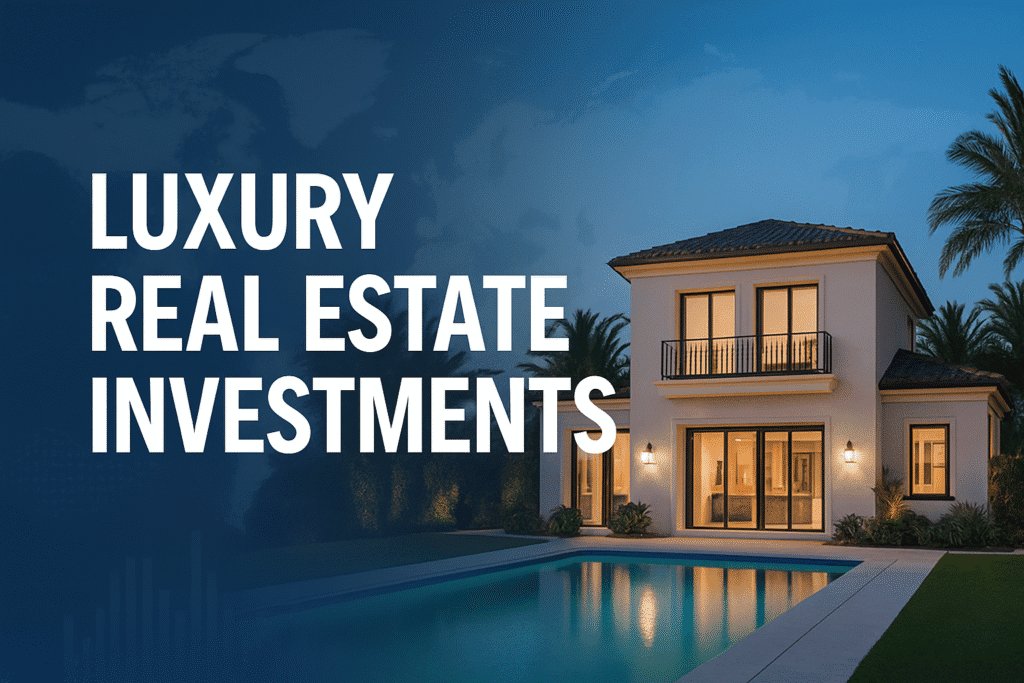
The Rise of Southeast Asia in Upscale Property Market
Southeast Asia has quickly become a rising star in the world of global luxury estates. Cities like Bangkok, Kuala Lumpur, and Ho Chi Minh City are drawing attention for their combination of affordability, luxury, and economic momentum.
Thailand, in particular, is seeing an influx of high-net-worth investors looking for both beachfront tranquility and bustling city life. In areas like Phuket and Koh Samui, you’ll find exclusive homes worldwide that rival anything in Europe or the U.S.—at a fraction of the cost.
Vietnam, though less traditional as a luxury hub, has grown rapidly. Its stable growth, low cost of living, and cultural richness are attracting Chinese, Korean, and Western investors. Developers are stepping up to deliver high-end property listings that cater to these international tastes with amenities like rooftop pools, concierge services, and private spas.
Another standout is Bali, Indonesia. Known for its spirituality and serene beauty, Bali has witnessed a boom in luxury real estate listings, especially from buyers looking for tranquil retreats or investment properties with high rental yields via short-term stays.
UAE, the U.S., and Caribbean: New Epicenters of Global Luxury Estates
Dubai has firmly established itself as a luxury hotspot. With its tax-free regime, world-class infrastructure, and futuristic skyline, it has become a preferred destination for HNWIs from Russia, India, and Africa. The demand for luxury apartments for sale in areas like Downtown Dubai, Palm Jumeirah, and Dubai Marina is at an all-time high.
In the U.S., while New York and Los Angeles still hold prestige, cities like Miami, Austin, and Scottsdale are becoming luxury magnets thanks to favorable taxes, lifestyle benefits, and emerging wealth pockets. The U.S. remains a favorite for those seeking political stability and a broad range of luxury homes for sale.
The Caribbean, on the other hand, offers something unique—citizenship through investment. Nations like Antigua & Barbuda, St. Kitts & Nevis, and Dominica offer passports in exchange for real estate purchases. These programs have driven a surge in luxury property investments throughout the islands, with buyers seeking beachfront mansions, gated estates, and marina-side villas.
How Luxury Real Estate Services Are Evolving
Role of Luxury Property Advisors and Consultants
Buying a multi-million-dollar property halfway across the world isn’t as easy as clicking “Buy Now.” That’s where luxury property advisors come in. These are not your everyday agents—they’re global strategists who manage everything from acquisition strategy to residency planning.
HNWIs demand more than just property tours. They want insight, discretion, and flawless execution. Advisors help identify promising markets, vet developers, and even coordinate legal, tax, and banking support across borders.
What sets these professionals apart is their network. Most are part of an elite real estate network that includes lawyers, private banks, investment managers, and relocation experts. Whether you need a private jet to view a villa or a tax expert to navigate property laws in three countries, these advisors deliver a white-glove experience that’s unmatched.
For wealthy clients, trust is everything. And that trust is earned through personalized, proactive, and confidential service—something only luxury property professionals truly understand.
Premium Real Estate Services Tailored to HNWIs
The bar is higher than ever. HNWIs expect their real estate experience to be as seamless and luxurious as the properties they’re purchasing. This has led to a rise in premium real estate services tailored specifically for this segment.
From bespoke marketing brochures in five languages to private yacht showings and invitation-only previews, the presentation and purchase experience is being elevated to a whole new level. Some firms even offer concierge-level services such as visa processing, post-purchase property management, and global wealth planning—all bundled with the property.
Additionally, many agencies now assign dedicated luxury property brokers who operate like private bankers—available 24/7, deeply knowledgeable about markets, and capable of making million-dollar transactions happen in days.
The level of customization, speed, and attention to detail required by this clientele is what sets the top players apart in the luxury real estate network.
Expansion of the Elite Real Estate Network
One of the most significant developments is the expansion of elite, invitation-only real estate networks. These networks bring together vetted professionals, trusted developers, and verified buyers under one umbrella.
Groups like Christie’s International Real Estate, Sotheby’s, and Knight Frank are no longer just real estate brands—they’re global ecosystems built to serve the wealthy. They offer access to luxury property experts with insider knowledge on off-market deals, upcoming developments, and exclusive communities.
By becoming part of this ecosystem, HNWIs gain not only access to premium properties but also peace of mind. Every broker, lawyer, and consultant within these networks adheres to the highest standards of professionalism and confidentiality.
For buyers navigating the complex landscape of luxury property investments, these networks serve as both compass and shield—guiding them toward the best deals while protecting their interests at every step.
The Role of Technology in Facilitating Global Property Transactions
Virtual Tours and Digital Showings in High-End Property Listings
Gone are the days when buyers needed to fly across continents to view properties. The modern luxury buyer expects remote access—and the industry has adapted swiftly. Thanks to high-definition video tours, drone footage, and 3D walkthroughs, luxury real estate listings can now be explored from a private jet, a yacht, or even the comfort of a suite at the Ritz.
These immersive experiences are no longer “nice to have”—they’re essential tools. Properties without digital showings often get skipped entirely. For sellers and luxury property professionals, offering cutting-edge virtual previews has become a crucial strategy to close international deals.
Moreover, technologies like AI-enhanced interior design previews and augmented reality staging are being used to help buyers visualize renovations or customizations—turning imagination into actionable plans before setting foot on the property.
Blockchain and Smart Contracts in Luxury Property Transactions
The luxury real estate world is also being transformed by blockchain. Secure, transparent, and efficient—blockchain tech is simplifying cross-border transactions in ways that traditional banking and legal systems simply can’t match.
Using smart contracts, parties can automate tasks like deposit releases, milestone payments, and title transfers—all without middlemen or weeks of paperwork. This is especially valuable when dealing with high-value, multi-party transactions that span different jurisdictions.
Even ownership records are getting a digital upgrade. Blockchain allows for the secure, immutable tracking of property titles and buyer credentials—making fraud nearly impossible. This not only builds trust but accelerates the entire purchase cycle.
For HNWIs, speed and security are non-negotiable. And blockchain, though still gaining traction, is poised to become a staple in luxury property transactions over the next few years.
Challenges HNWIs Face in Cross-Border Property Purchases
Legal Complexities and Foreign Ownership Laws
Purchasing luxury real estate internationally might sound glamorous, but the legal terrain can be a minefield. Every country has its own set of property laws, and in some places, foreign ownership is highly restricted or even prohibited. For instance, Thailand doesn’t allow foreigners to own land outright, while countries like Switzerland have strict quotas for non-residents purchasing homes.
HNWIs navigating this world often need teams of luxury property advisors, international lawyers, and residency consultants to handle the legal paperwork. These laws aren’t just about ownership—there are often layers involving zoning regulations, land use rights, and development restrictions that can derail an investment if not handled correctly.
Another challenge? Title verification. In many developing countries, land records are not digitized or properly maintained, making due diligence a risky endeavor. This is where seasoned luxury property professionals step in. Their local connections and legal know-how ensure that every inch of the deal is clean, verified, and future-proofed.
If you’re considering luxury property investments, make sure you’re not just dazzled by the sea views—check that your name can be legally attached to that view. And always lean on professionals with a proven track record in premium real estate services across borders.
Currency Fluctuations and Taxation Issues
Currency risk is one of the least glamorous but most critical factors in cross-border real estate. A small fluctuation in exchange rates can mean losing—or gaining—hundreds of thousands of dollars. For instance, if you’re buying a €3 million villa in Portugal and the dollar weakens during closing, you could pay significantly more than expected.
This is why many elite buyers work with luxury property consultants who also collaborate with forex experts to hedge their transactions. Some even pre-convert funds or use multi-currency accounts to lock in favorable rates well in advance.
Taxation is another beast. Property taxes, capital gains, inheritance taxes, and wealth taxes differ dramatically between countries. For example, France has a wealth tax on real estate assets, while Dubai offers tax-free property income. Without sound financial planning, an investor could end up with a stunning villa and a monstrous tax bill.
To mitigate this, luxury real estate network members often include international tax planners who specialize in structuring deals that protect wealth. From forming offshore entities to leveraging double-taxation treaties, there are legal ways to optimize outcomes.
The bottom line? Cross-border real estate investment isn’t just about taste and timing—it’s about strategy and structure.
Benefits of Hiring Luxury Property Professionals
How Luxury Property Brokers Streamline Transactions
When dealing with luxury property investments, every detail matters. That’s why HNWIs rarely go it alone. They rely heavily on experienced luxury property brokers who do much more than show listings—they orchestrate the entire buying journey.
From scouting off-market opportunities to negotiating with high-profile sellers, these brokers act as gatekeepers to elite properties that never hit public listings. They’re part of an elite real estate network where trust and reputation are the currency. That means they can open doors that money alone often can’t.
Their expertise ensures transactions move faster, with fewer surprises. Brokers are trained to identify red flags—be it inflated prices, dubious titles, or hidden maintenance issues—before contracts are signed. They coordinate with lawyers, architects, and surveyors, ensuring the buyer’s interests are protected at every turn.
For international deals, these professionals also navigate complex logistical challenges like travel arrangements, currency conversion timing, and bilingual contracts. Their local knowledge and connections often become the difference between a dream purchase and a financial nightmare.
The Importance of Local Market Knowledge in International Deals
A property might look like a great deal on paper, but if you don’t understand the neighborhood, cultural nuances, or market cycles, you’re walking in blind. This is why working with luxury property experts who are based locally is a game-changer.
They understand more than just price per square foot—they know the vibe of the community, future development plans, local politics, and even which streets are prone to traffic or noise. In short, they offer insight that Google searches or glossy brochures can’t.
For instance, a buyer might be eyeing a penthouse in central Rome. A local expert would know about pending zoning changes, tourism fluctuations, or even renovation restrictions in historical areas. That kind of intel can save a buyer millions and months of headache.
Local professionals also have relationships with trusted service providers—contractors, architects, designers, and even security firms. When you’re spending millions, you want your investment supported by a trusted team that knows the terrain.
Exclusive Trends: Luxury Villas and Apartments for Sale
Key Features Buyers Look for in Luxury Villas for Sale
The modern luxury villa isn’t just about size or location—it’s about experience. HNWIs are increasingly looking for properties that offer a seamless blend of privacy, technology, and ultra-personalized amenities.
Think beyond infinity pools and home theaters. Today’s villas feature things like private wellness spas, rooftop gardens, wine cellars with biometric locks, helipads, and underground garages for supercars. In coastal markets, private beach access and yacht docking are non-negotiables.
Security is a top priority, too. Gated communities, CCTV systems, 24/7 surveillance, and panic rooms are often baked into the architecture. Some villas even come with dedicated staff quarters and full-time concierge services.
In terms of style, there’s a clear move toward eco-modern design—think open layouts, sustainable materials, and smart home systems that can be controlled remotely. Buyers also want homes that reflect their personality—custom art installations, curated furniture packages, and spaces designed for entertaining are all in high demand.
For investors, these features are not just indulgent—they’re value-drivers that ensure long-term appreciation and better rental yields.

Upsurge in Demand for Luxury Apartments in Prime Cities
While villas offer space and solitude, luxury apartments remain the crown jewel in urban real estate. Cities like New York, London, Paris, and Hong Kong are still magnets for those who crave cosmopolitan energy without compromising on comfort.
Today’s luxury apartments for sale go beyond square footage. HNWIs want floor-to-ceiling windows with panoramic views, designer kitchens, spa-grade bathrooms, and top-of-the-line materials. They also demand access to five-star amenities: concierge services, wellness centers, rooftop lounges, private theaters, and even residents-only art galleries.
In many developments, privacy is paramount. Separate entrances, private elevators, and soundproof walls ensure discretion—something celebrities and CEOs value immensely.
The COVID-19 pandemic also led to a reimagining of apartment design. Buyers now look for integrated office spaces, wellness zones, and even green balconies for indoor-outdoor living. The demand for smart building features—air filtration, contactless entry, and energy-efficient systems—has skyrocketed.
What’s driving this trend is not just lifestyle—it’s also logistics. Apartments in urban centers are often easier to manage, offer strong rental returns, and benefit from sustained demand due to limited supply.
The Future of Luxury Property Investments
Emerging Patterns in High-End Real Estate Demand
As the global economy evolves, so too do the preferences of luxury buyers. One clear trend is the integration of lifestyle, tech, and sustainability into real estate decision-making. Buyers are looking for properties that offer not just status—but meaning.
Legacy has also become a key factor. Many HNWIs are buying properties with generational wealth in mind. They want estates that their families can enjoy for decades or properties that can serve as long-term income generators or philanthropic assets.
There’s also growing interest in branded residences—luxury apartments and villas developed in partnership with iconic brands like Four Seasons, Armani, or Porsche. These homes come with the promise of design excellence, top-tier service, and instant prestige.
As global mobility continues to rise, we’ll also see more demand for real estate that offers citizenship or residency benefits. Countries that adapt and offer seamless cross-border property ownership will win big in this competitive space.
Predictions for the Global Upscale Property Market
The next decade will be defined by the fusion of property and technology. From AI-driven pricing models to virtual reality showings and blockchain-backed transactions, the upscale property market is going digital.
At the same time, climate change and sustainability concerns will reshape where and how properties are built. Areas with extreme weather risk may lose value, while climate-resilient zones will attract premium prices.
Another shift will be in ownership models. Fractional ownership, private real estate funds, and luxury property tokenization will open doors for new types of investors—allowing more people to access the ultra-luxury segment through shared investment platforms.
In short, the future is fast, digital, and global—and HNWIs will continue to be the architects of this transformation.
Conclusion: The Lasting Impact of HNWIs on Global Real Estate
High-net-worth individuals are no longer just participants in the global real estate market—they’re rewriting the rules. With their appetite for diversification, demand for personalization, and readiness to spend big on luxury and lifestyle, they are shaping the future of international luxury properties in ways we’ve never seen before.
Whether it’s reshaping cities with demand for high-rise penthouses or reviving sleepy towns through luxury villa purchases, their influence is profound and lasting. For real estate professionals, understanding the behaviors, preferences, and challenges of these buyers isn’t optional—it’s the key to staying relevant.
The rise of cross-border investment, the merging of lifestyle and real estate, and the rapid evolution of property technology are all being propelled by this elite class. And as they continue to seek the best homes, experiences, and returns around the world, the game will keep evolving.
FAQs
What is considered a luxury property?
A luxury property typically refers to high-end real estate that offers premium amenities, top-tier finishes, and prime location. Think penthouses in major cities, beachfront villas, or heritage estates with bespoke interiors and services.
Which countries attract the most HNWIs for real estate investment?
The U.S., UAE, Portugal, Spain, Greece, and Caribbean nations are top destinations. These countries offer lifestyle appeal, strong legal protections, and in some cases, residency or citizenship benefits.
How do luxury real estate agents help in cross-border deals?
Luxury agents provide access to exclusive listings, negotiate complex deals, handle legal and financial arrangements, and often offer concierge-level services that make global transactions smooth and secure.
Are luxury real estate investments safe in 2025 and beyond?
Yes, when chosen wisely and with proper guidance. As a tangible asset, luxury real estate offers long-term appreciation, rental income, and portfolio diversification, making it a preferred choice for wealthy investors.
What makes a property truly “international luxury”?
Location, design, amenities, exclusivity, and global appeal. A property that combines these elements while offering seamless ownership and management options across borders is considered a top-tier international luxury asset.
